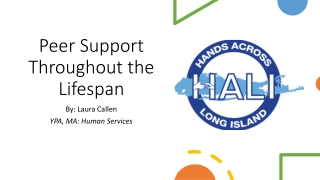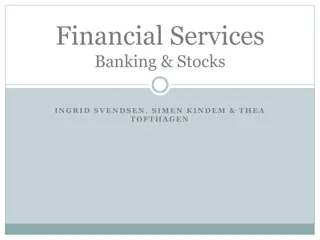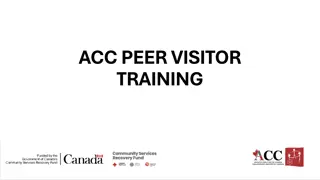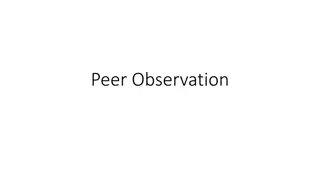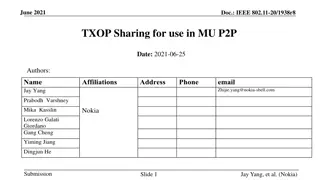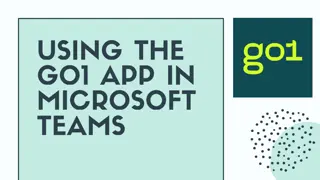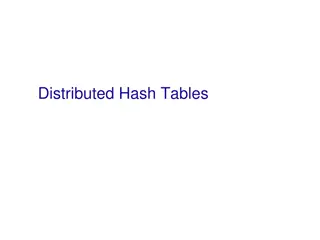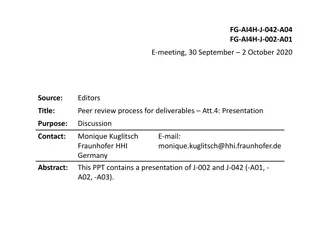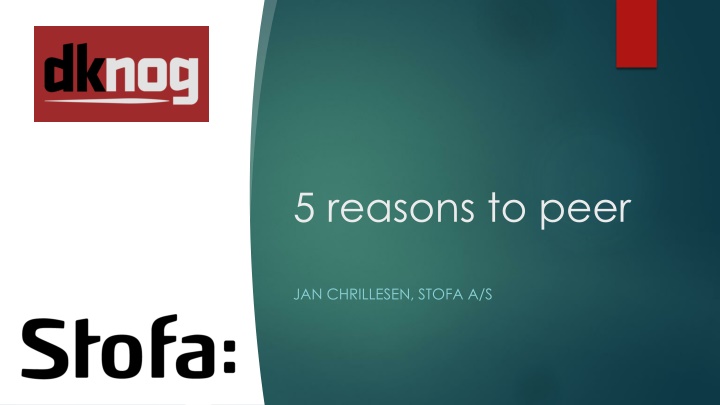
Benefits of Peering for Network Resilience and Performance
Discover the top reasons why peering is crucial in today's network landscape. From reducing latency to enhancing resiliency and protection from DoS attacks, peering offers numerous advantages for maintaining a decentralized and robust Internet infrastructure. Explore how peering can help improve network performance and reliability in the face of evolving technology trends.
Download Presentation

Please find below an Image/Link to download the presentation.
The content on the website is provided AS IS for your information and personal use only. It may not be sold, licensed, or shared on other websites without obtaining consent from the author. If you encounter any issues during the download, it is possible that the publisher has removed the file from their server.
You are allowed to download the files provided on this website for personal or commercial use, subject to the condition that they are used lawfully. All files are the property of their respective owners.
The content on the website is provided AS IS for your information and personal use only. It may not be sold, licensed, or shared on other websites without obtaining consent from the author.
E N D
Presentation Transcript
5 reasons to peer JAN CHRILLESEN, STOFA A/S
Why should you peer? For many networks the main reason for getting into peering used to be about saving money on transit Transit prices drop 25-30% each year IX port prices remains somewhat unchanged Prices for crossconnects keep going up The businesscase for peering becomes less obvious Why should you care about peering in 2019?
1. Latency Many customers are moving their services into public cloud and demands very low latency towards the cloud providers Fiber access have been providing low latency for many years Residental access like xDSL and DOCSIS well below 10 ms 5G and low latency DOCSIS promises 1 ms RTT to 1. hop We need to reduce end-to-end latency. Peering will often give you lower RTT than transit
2. Resiliency Most networks have some kind of redundancy on their transit. Multiple uplinks and/or several providers Especially for networks with only one transit provider, peering provides a reliable alternative to reach important networks Peering in multiple locations and/or IX s, means that the chance of loosing important networks becomes very small Even if you loose transit entirely, a decent portion of the Internet would remain reachable (assuming DNS is cached or reachable via peering) Protect against route leaks due to shorter AS-path
3. Better protection from DoS All DoS attacks are now distributed and mostly originates from not- so-well maintained networks! Most of your important traffic will come from peers Most of the bad traffic comes from transit Even if you need to withdraw a prefix from your transit provider(s) you would still have decent reachability By deploying proper filtering on your peering sessions, the risk of unwanted traffic becomes even smaller not possible on transit
4. Help keep the Internet decentralized The Internet survived by being decentralized and highly redundant Trend towards a small number of very large networks DNS - Google, Quad9, OpenDNS, Cloudflare Transit - some very large providers worldwide (Level3) and regional (Globalconnect/Nianet) Even large transit providers have issues every now and then It s important that Internet connectivity doesn t depend on a single service provider
5.Be part of a great community Find peers (as in human persons) at your skill level Attend conferences like DKNOG, RIPE, EPF, IX meetings etc Network with cool people that don t want to sell you stuff Fix problems easier Don t be afraid - peering managers from even the largest networks tends to be really cool to hang out with!
Entry level is lower then ever Today it s easy to get a significant part of your traffic through peering even if you only peer within Denmark, and exclude the traffic that could be served by CDN caches All the major content providers are happy to peer with everyone little effort == lot of traffic! Routers capable of holding full table is cheaper than ever and you really don t need to hold a full table anyway Tools like route servers and peeringdb makes finding and setting up peers easy Distributed IX's like NL-IX makes reaching a large number of peers easy See http://drpeering.net for more info on peering
Questions (and peering requests!) jahc@stofa.dk or peering@stofa.dk

